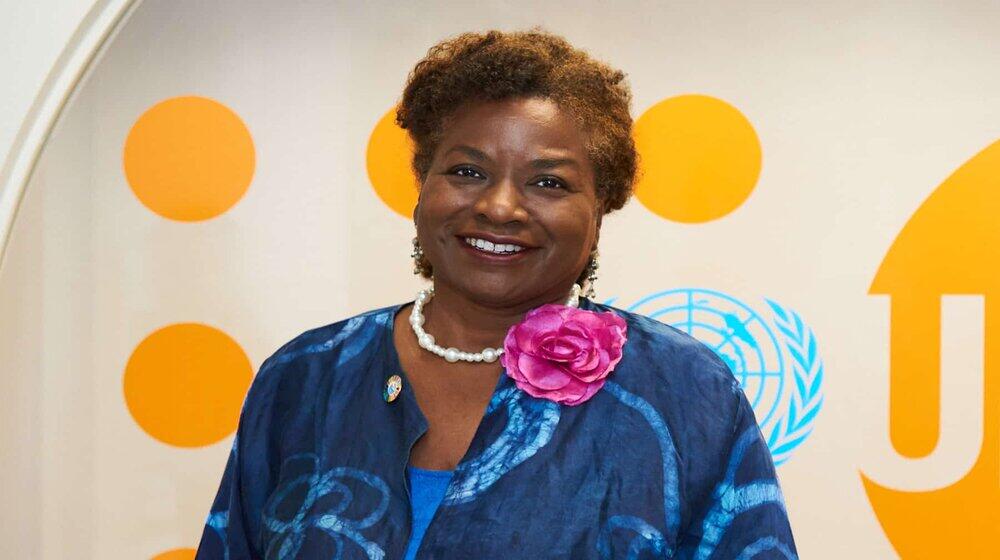After more than 100 days of conflict, Gaza is unrecognizable. The numbers tell a shocking story, with an unprecedented 2.2 million people in need of aid, and 1.9 million people displaced. Over 24,000 civilians have been killed, 70% of whom are women and children. Many thousands more have been injured, and many are still unaccounted for under the rubble. Of those who have survived, disease, hunger, and dehydration threaten whatever little hope they have. The health system is on life support.
Amid these horrific conditions, 180 women are giving birth each day. A recent UNFPA mission to the Emirati Hospital –a facility that has been taking on a majority of the maternity cases –revealed how little maternal health care is available today to the pregnant women of Gaza. Staff are operating far beyond their capacity with limited space, and women recovering from cesarean births are discharged within a day. UNFPA reproductive health kits and medical equipment are being put to use the moment they arrive to ensure clean, safe births.
UNFPA has been able to deliver enough supplies to support over half of the approximately 18,000 births that have taken place in the last 100 days. Far too many births are taking place in unsafe, unclean conditions as women are unable to access hospitals and are forced to give birth in shelters. We cannot let this continue.
We are also concerned about the 690,000 women and girls in Gaza who require menstrual hygiene supplies and who have extremely limited access to those essential products and to water and toilets. As well as being unable to manage their menstrual cycle in privacy and with dignity, they are at risk of reproductive and urinary tract infections. Since hostilities began, UNFPA has distributed thousands of dignity and hygiene kits. Last week, we delivered enough menstrual hygiene kits to meet the needs of over 5,280 women for four months – a drop in an ocean of need.
UNFPA joins the United Nations Secretary-General and the international humanitarian community in calling for an immediate humanitarian ceasefire.
Gaza’s health care system desperately needs more support, and aid must be allowed to reach all parts of Gaza at a far greater pace and at the scale required to meet the enormous needs.
We call for the protection of civilians and the infrastructure they rely on – including hospitals, shelters, and schools, and for international humanitarian law and international human rights law to be upheld by all parties.
UNFPA once again calls for the immediate and unconditional release of all remaining hostages, and for accounts of sexual violence during the brutal attacks on Israel on 7 October to be rigorously investigated and prosecuted.
After more than 100 days of devastation, women and girls urgently need peace and humanity to prevail.


